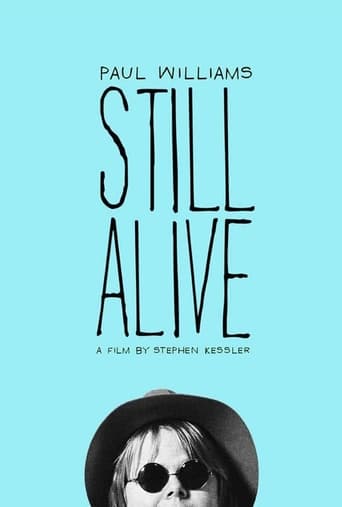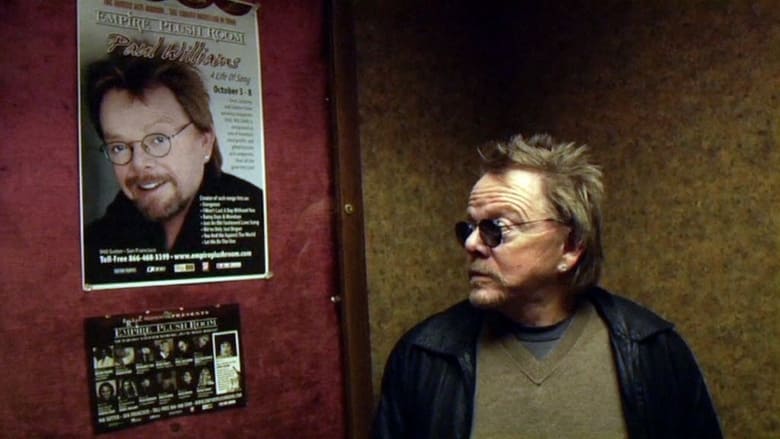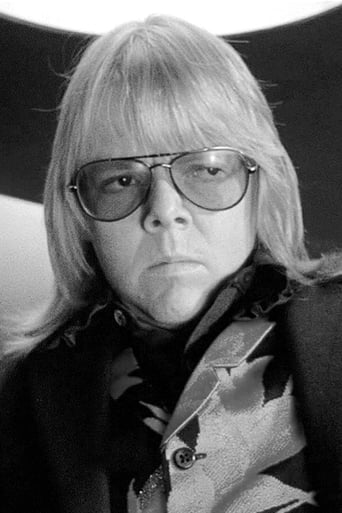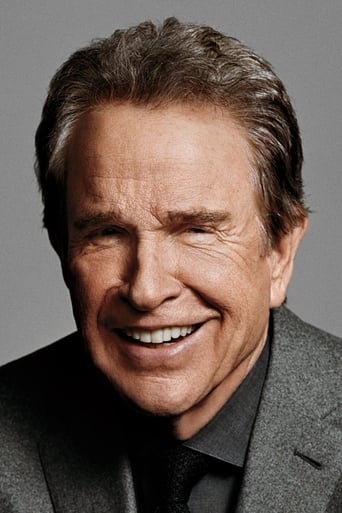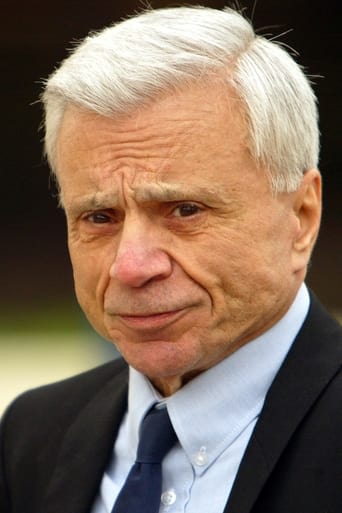Paul Williams Still Alive (2011)
Filmmaker and longtime fan Stephen Kessler's portrait of the award-winning 1970s singer-songwriter-actor, who disappeared for much of the 1980s and '90s, but still performs today.
Watch Trailer
Cast


Reviews
Instead, you get a movie that's enjoyable enough, but leaves you feeling like it could have been much, much more.
Funny, strange, confrontational and subversive, this is one of the most interesting experiences you'll have at the cinema this year.
One of the most extraordinary films you will see this year. Take that as you want.
Exactly the movie you think it is, but not the movie you want it to be.
Writer/director Stephen Kessler is a working filmmaker in Hollywood. He's a fan of songwriter celebrity Paul Williams. Assuming Paul is dead, he is surprised to find out that Paul is still alive and still working. It turns out that he is sober just recently. Paul Williams was a big songwriter of the '70s. After a good performance on The Tonight Show, he became somewhat of a celebrity. He became hooked on various substances and fame. However his fame fades.Kessler is somewhat of a stalker. It gets awkward at times. Paul chaffs at Stephen's insinuation that something is pathetic about his later career. Sometimes he's treated like a family member. Other times, there is this weird tension. But Stephen always seems to be a fan, and that adds a sweet charming feel to the movie.
Earlier this summer, I had the unexpected pleasure of seeing Paul Williams. Yes, THAT Paul Williams. The prolific, Oscar- and Grammy-winning '70s pop composer ("We've Only Just Begun," "Evergreen," "You and Me Against the World," "Rainbow Connection," "Theme from 'The Love Boat," and many more). His name caught my attention in eighth grade, when I was starting to discover songwriters and learned that it was he who had written hits by different performers I liked. I even bought one of his albums. But then he embarked on a singing and acting career and became one of the most ubiquitous personalities on '70s TV, appearing on the Carson "Tonight Show" nearly 50 times, numerous other talk shows (Mike Douglas, Dinah Shore), game shows ("Hollywood Squares"), crime dramas (he got into a shooting match with Angie Dickinson), sitcoms, and even "Circus of the Stars" (where he jumped out of a plane). I'm sorry, but this was just too much Paul for me, and I started to tune him out.Until seeing this documentary, I never paid much attention to the person behind the stocky, five-foot-two frame, shaggy hair, tinted aviator specs, glib personality, and warbly voice. His story has the usual elements: childhood loneliness, need for acceptance, rise to A-list fame and fortune, fading star, descent into alcohol and drugs, rehab, triumph (he has been sober for 25 years), and contentment upon finally finding and accepting his place in the world.But what makes this film so compelling is that it was made by a fan of my generation who became a successful director. Although it breaks the rule that a documentarian should not inject himself into his work, the developing bond between filmmaker and subject (Stephen Kessler followed Williams, his childhood hero, for three years) proved to be a worthy secondary story. That Williams would open himself up to a stranger, and the warm friendship that developed, give the documentary a more informal, personal dimension than Ken Burns' best work, without Michael Moore-style political messages. Kessler admits to once wanting to be Paul Williams, and I found myself wanting to be Kessler — to follow a childhood hero and become buddies with him. How cool is that! "Still Alive" is a serious work, but neither Williams nor Kessler takes himself seriously, resulting in candid, funny, heartwarming moments, not to mention the film's self-deprecating title.I was intrigued by the coverage of Williams' acceptance of an invitation to perform in, of all places, the province of Mindanao in the southern Philippines — the notorious part of the country that American tourists are urged to avoid because of Al Qaeda threats. Fortunately, not only did the 8,000-mile trek proceed terror-free (including the six-hour bus ride through a jungle), but Williams felt much love from throngs of fans in this far-off land, known for its affinity for sweet, sentimental music. He had flown back to the '70s.As if the film weren't remarkable enough, what followed was a live Q&A with Williams himself, now a fit 71, and director Kessler. The audience at the Gene Siskel Film Center in Chicago was mostly middle-aged, but there were also seniors and kids, including an 11-year-old who asked the diminutive composer whom he admired growing up (Paul's answer: Mickey Rooney, because he was short, famous, and still got the girl). The graciousness, honesty, humor, wisdom, dignity, and warmth emanating from the stage exceeded my expectations. I learned that Williams' lyrics about loneliness, heartache, and hope really did come from his heart, and that he continues to be gratified by the connection that millions feel to his songs.In just two hours, I grew from simply enjoying Williams' work to admiring him, and in some ways even identifying with him. Before I go to bed tonight, I think I'll play my piano-bar rendition of "Rainy Days and Mondays." There's still hope for me yet.
I only just re-discovered Paul Williams a year ago, although he was a clear memory from my childhood. Williams was a ubiquitous TV personality in the 1970s. And although the film will definitely appeal to nostalgia addicts of a certain age, it has more than enough good humor and emotional resonance to draw in anyone who's never heard of him (everyone's heard his songs). Kessler approaches his subject with great love, respect, and a sometimes intrusive curiosity. Williams responds at first with suspicion, then eventually trust. The growing affinity between subject and filmmaker almost becomes a second plot line - the primary one being Williams' manic career. It's edited with wit and, dare I say, pathos. I sat fairly close to the screen, and there were a few moments where shaky camera-work bothered me, but that's an inevitability whenever a filmmaker obsessively attempts to capture the essence of a childhood hero. The film also functions as a meditation on the true meaning of success and happiness. It's a lesson sorely needed in an aggressively competitive world, but the film doesn't preach. You walk away with some of the most beautiful songs ringing in your head. A beautiful film.
This film is not a traditional biopic, but rather the director's recounting of the role Paul Williams has played throughout his life. How he remembers him from his youth, and how he figures into his current life. There are touches of Paul's early career and life, but the primary focus is on the friendship which grew between him and the director throughout the years of filming.Stephen Kessler, a once hopeful, now floundering director, had been a fan of Williams' work growing up, but lost track of him somewhere around the early 80's. Much to his surprise, he found out that the entertainer was not dead, as he had long assumed, and was still making public appearances. He then went on a journey to discover where Paul had disappeared to for all those absent years.The only flaw with this idea is that, for many of us, Paul never disappeared. Sure, his presence wasn't as strongly felt as it may have been a few decades ago, but even with his struggles with drug and alcohol abuse (now clean for 20 years), Paul was still making music and appearing in several films and TV shows. While I realize that Paul may have been flying under the radar for many, he was far from underground. Kessler ignores these recent efforts, leaving blank Paul's creative history between 1980 and the late 2000s when he started filming this documentary. When asked during a Q&A following a screening of this film if he was still writing music, Paul lovingly jokes that he is and he thinks Kessler would have been happier to have found him living a trailer and eating out of trashcans, as it would have been better for his movie. This film is not really one about Paul Williams, per se, it seems more about Kessler's search to find out something about his past, about his own slipping into obscurity, and the ways in which filming Paul transforms from an idea, to a crutch, to a renewed hope in his own career...and a friendship between the two.While I feel like some discredit was done to Paul by lacking to mention the full spectrum of his work, I am glad to have a film that can renew interest in him and his many talents. The film is fully entertaining and Williams is delightful, albeit not quite the focus that the title might lead one to believe.

